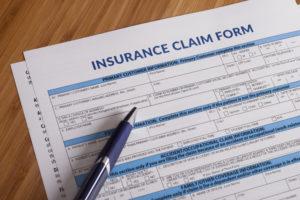
Status Update: Just got into a fender bender! Send thoughts and prayers—and a good lawyer!
In today’s tech-savvy world, we tend to share everything—the good, the bad, and especially the ugly. While social media has helped advance our lives in many ways, it can potentially damage your personal injury claim. Knowing how to manage your social media profiles and status updates during the claims process can help you protect your right to a fair payout.
In the past, many attorneys recommended deleting profiles during litigation or even while an insurance claim was underway. However, many people rely on their social media for work, staying in touch with family, and other important uses. Deleting them may not work for everyone. If you cannot delete or deactivate your social media, consider these tips.
“Pics, or It Didn’t Happen!”
Too often we forget how accessible our info becomes once we post it on the internet, so it’s important to keep any damaging photographs, comments, etc., to a minimum. What’s one of the first things any of us do when we meet somebody new? Check social media for a profile.
Insurance companies and attorneys do this, too. This could be through Facebook, Twitter, Instagram, LinkedIn, or any other social media platform. They will use any damning evidence they can get from your social media to debunk your personal injury claim. Adjusters want their company to pay out as little as possible and finding anything they can use to possibly reduce your compensation is the goal.
For example, you claim to suffer from severe back pains after the accident, but then you post photos of you dancing at a bar with your friends or playing flag football at a park. Insurance companies are out to get any and all evidence that your physical activities are inconsistent with your injuries. This may be used to show your injuries were not as severe as you claimed and therefore not worth as much.
For a free legal consultation, call 800-537-8185
Do Not Mention Your Accident at All
Your best option is to avoid mentioning your accident and injuries on social media. In fact, you should discuss it with as few people as possible. You can talk to your immediate family and a few trusted friends, but sharing information about what happened with a wider audience is not a good idea. Let your attorney handle all communication about the crash, even with the insurers.
No matter your intentions when talking about your injuries, you could say something that the insurance company or a defense attorney will try to use against you. This is why lawyers generally manage the communication with the at-fault party and their representatives. It protects your rights and mitigates any damage done by misinterpreted or purposefully misquoted statements.
Once the case is closed and a settlement or verdict is reached, you can update everyone following your social media profiles on what has been going on. However, even vague mentions of your legal case could jeopardize your financial recovery.
Self – Sabotage
Damaging posts on social media are not limited to disproving physical injuries or twisting your words about the incident; insurance companies may try to develop theories about your personal character, which could potentially damage your credibility as a witness in your own case. If you post derogatory comments, photos of illegal activities, or anything potentially damaging, the adjustor or attorney may use those posts to cast you in a negative light.
Be especially careful of posts you make immediately following an accident; insurance companies can use that as evidence of distracted driving against you. Inattention due to phone use or other distractions causes so many wrecks today that you want insurance companies to have zero suspicion of your phone usage during a wreck. If you’re the one behind the wheel, don’t use Facebook Live or Snapchat during your travels—this is dangerous regardless of the effect it could have on your personal injury claim.
Click to contact our personal injury lawyers today
Check Your Settings
If you ever find yourself in an accident because of someone else’s negligence, try to keep this in mind: limit access and adjust your privacy settings on your social networks, or consider making your account(s) private until the claims process is finished. And above all, think before you post!
Also be careful who you approve as a “friend” or follower during this time. Unless you know the person, you may be letting the at-fault party, someone from their law firm, or another party into your private account unknowingly—remember everything on social media is not always what it appears to be!
Safeguard your accounts to protect your posts from being misinterpreted or used against you in some way. Remember not to focus on only Facebook, either. The insurance companies and attorneys will find other accounts and look through them, too. Something as simple as a video on Tik-Tok of you lifting your child could be used against you in court.
Work With a Personal Injury Attorney to Protect Your Rights
Hiring an attorney to manage your claim and offer guidance during this stressful time is the best way to protect your right to compensation. If you have questions about your potential personal injury case, contact a Morris Bart attorney today or fill out our free case evaluation form. We have offices around the Gulf South – visit our locations page to find a Morris Bart office near you!
Dial (800) 537-8185 for your free case review today.
Questions?Call 800-537-8185
to find a Morris Bart office near you.





